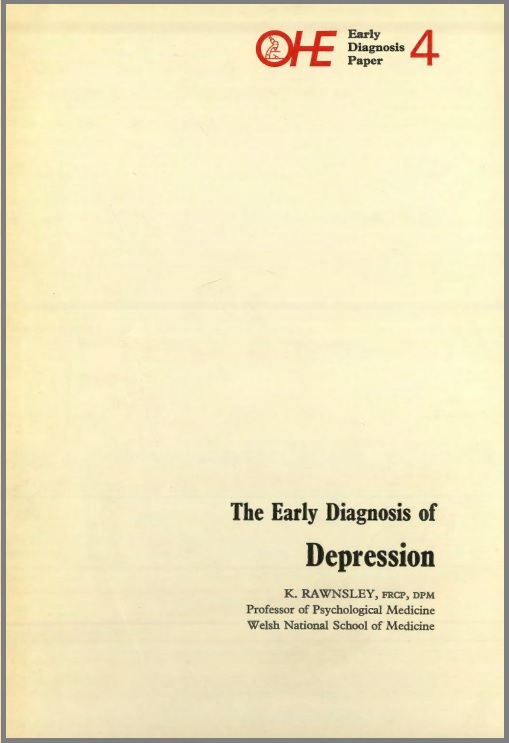Depressive illnesses are widespread and potentially fatal through suicide. The majority of depressions which come to the notice of doctors are treated solely by GP’s. Diagnosis…
Depressive illnesses are widespread and potentially fatal through suicide. The majority of depressions which come to the notice of doctors are treated solely by GP’s.
Diagnosis of the severe case is easy but many patients with milder depressions present with symptoms of a…
Depressive illnesses are widespread and potentially fatal through suicide. The majority of depressions which come to the notice of doctors are treated solely by GP’s.
Diagnosis of the severe case is easy but many patients with milder depressions present with symptoms of a somatic nature. Prevalence increases with age, reaching a peak during the period age 55-64. The disease is commoner in women than in men. Vulnerable times are during the puerperium and also after bereavement. Because of the self-limiting nature of depressive episodes, systematic screening of whole populations would be unrewarding. In practice, the GP must be the effective screening agent. Despite active interest in the biological and biochemical concomitants of depression, the only ‘objective’ procedures available to date as screening instruments are psychological questionnaires.
The Beck Depression Inventory is quoted as a research instrument which maybe useful in this field, although this has not yet been validated in the setting of general practice.
Early diagnosis of depression has become much more importany in general practice since the advent of antidepressant made treatment possible in this setting
